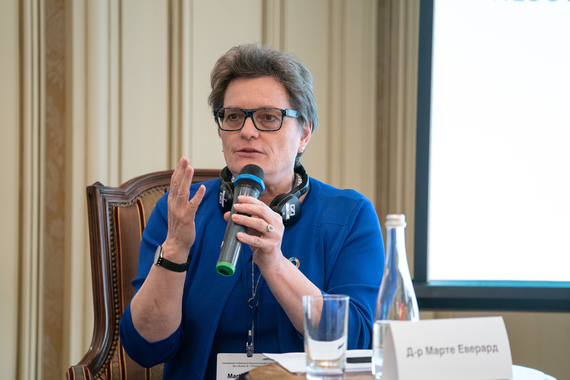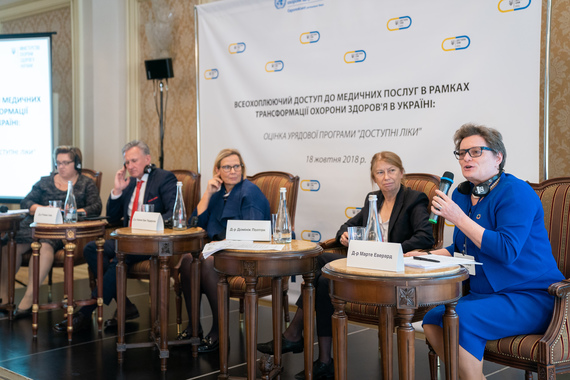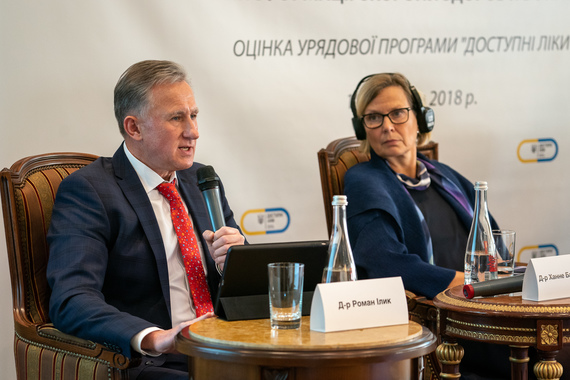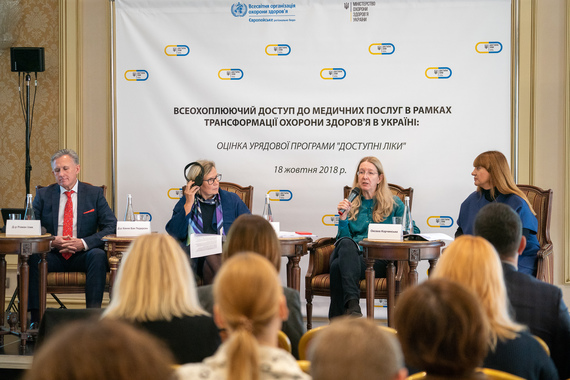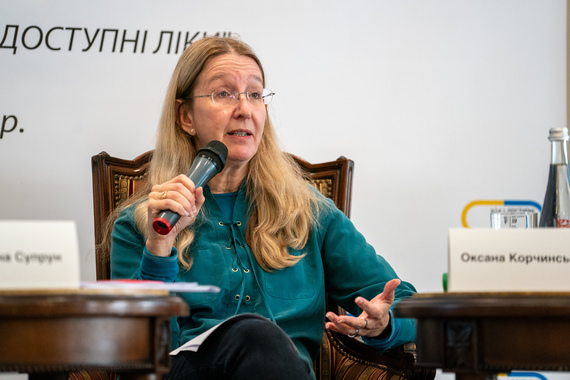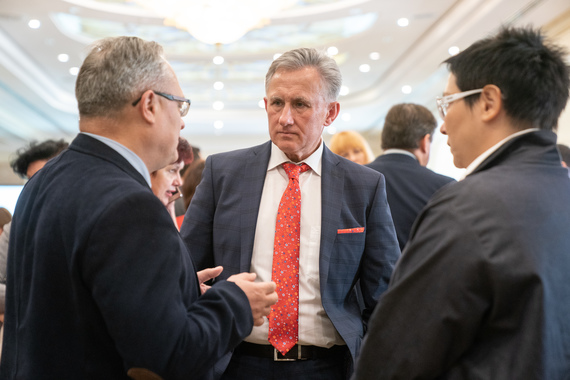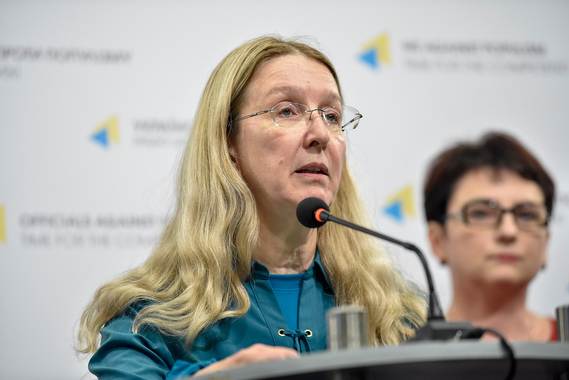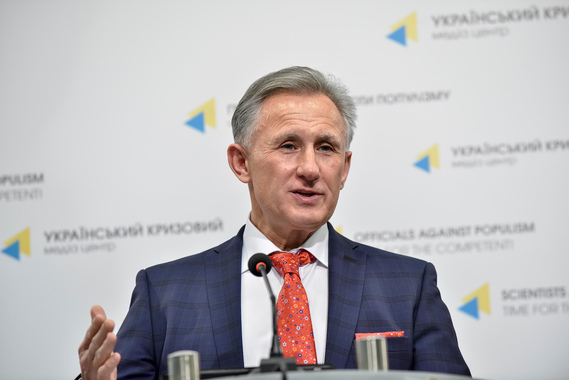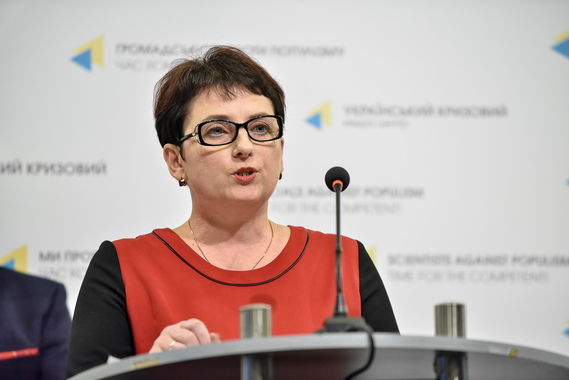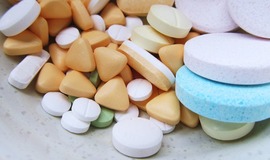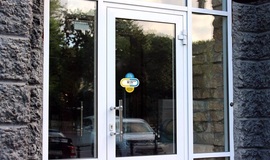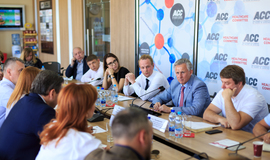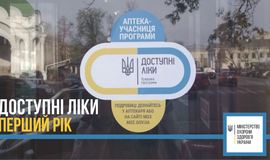News
WHO assesses the Affordable Medicines Program and concludes that Ukrainians no longer have to choose between food and medicines
More than 20% of all medicines included in the Program are fully reimbursable, i.e. provided to patients with correct prescription completely free of charge.
On October 18, 2018, the World Health Organization presented the findings of a detailed assessment of the Affordable Medicines Government Program, and outlined the key recommendations for further development and implementation of the program.
The report says the majority of doctors confirm that for many patients the program is the only chance to get treatment. Some patients with chronic bronchitis even asked for a change in the diagnosis (to be registered as asthma patients) to be able to obtain free treatment or treatment at a reduced cost under the program. This suggests that people perceive the program as a means to access necessary and/or expensive treatment. Therefore, this provides additional reasons for reviewing or expanding the list of reimbursable medicines.
The Affordable Medicines Program is being implemented in Ukraine promptly and efficiently. The Ministry of Health of Ukraine ensures timely and sufficient communication, and engages all local and national stakeholders in the program development. Since its launch, the program has quickly gained considerable momentum.
The WHO experts underlined a positive trend, promoted by the program rules: continuous treatments and regular visits to the doctor ensure that a patient's chronic condition is under constant supervision of the doctor. Another important aspect of the Affordable Medicines program is the patients' choice of medicine brands, because doctors prescribe INN medicines, i.e. active substance, not the trade names.
Since April 2017, the Affordable Medicines Program has gradually become a regular component of the new healthcare system in Ukraine. More than 6.6 million Ukrainians have already benefited from the program, and received fully or partially reimbursable medicines with over 28 million prescriptions for a total amount of about UAH 1.6 billion. Currently, the program includes 261 medicines, 59 of which are fully reimbursable. There are 7,937 pharmacies participating in the program.
The WHO Regional Office for Europe supports the Ministry's initiative to expand the program to include the primary care gastrointestinal medicines and neuro-psychiatric molecules (antidepressants, antiepileptics, neuroleptics and anxiolytics). In addition, WHO suggests including medications for treating chronic obstructive pulmonary disease, as well as broad-spectrum antibiotics, analgesics (including controlled medicines for palliative care), steroidal and non-steroidal anti-inflammatory molecules.
A digitalization of the prescription system, and an active engagement of pharmacies should also be considered as potential options for the program improvement.
The WHO report was presented to local and national stakeholders involved in the program, including policy makers, prescribers, patients, pharmacists, wholesalers, pharmaceutical companies, and others.
Background information: At the official request from the Ukrainian authorities, the WHO Regional Office for Europe performed the assessment of the Affordable Medicines program. The study was conducted by a team of WHO experts from international and country offices. The work benefited from technical input and support from the Safe, Affordable, and Effective Medicines for Ukrainians program (SAFEMed, USAID) and the Ministry of Health of Ukraine.
The data was collected during the two periods: April – September 2018, and September – October 2018. In consultation with national experts and authorities, the team selected the following seven Ukrainian oblasts for the analysis: Kharkiv, Lviv, Odesa, Ivano-Frankivsk, Vinnytsia, Kherson, and Dnipropetrovsk oblasts.
The official report will be published on the website of the Ministry of Health of Ukraine as soon as it becomes available.
Please follow the link to watch the press briefing: video

